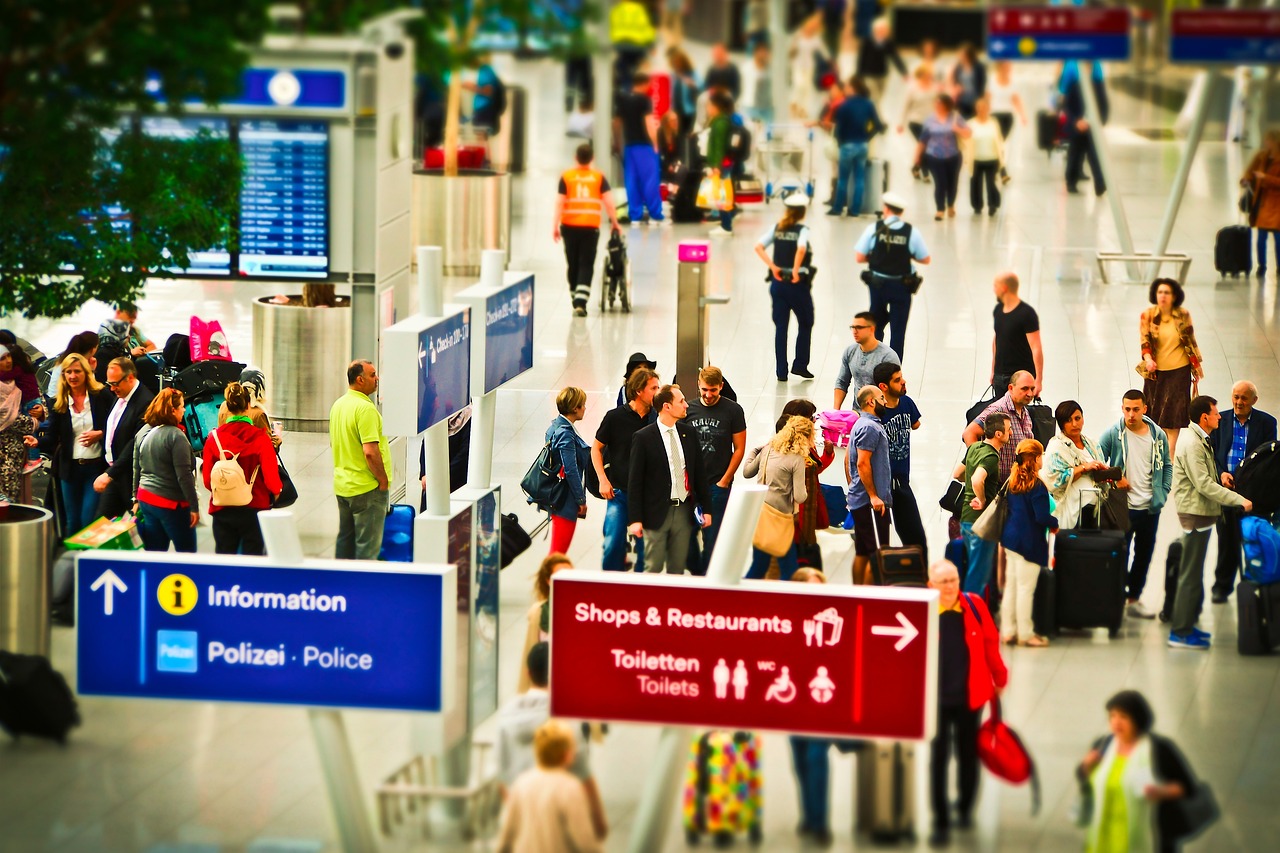Media release
From:
Cleaning surfaces every two hours cuts norovirus infections by 83% in airports
Study of people touching surfaces at airport finds restaurants have highest rates of transmission
At airports, frequently disinfecting surfaces, mask-wearing and antimicrobial surface coatings can all help prevent the spread of norovirus, according to a new study by Nan Zhang of the Beijing University of Technology in Beijing and colleagues, published December 5, 2024 in the open-access journal PLOS Computational Biology.
Norovirus is a highly contagious gastrointestinal virus that causes severe vomiting and diarrhea, and is responsible for about 685 million cases and 200,000 deaths each year. The virus is primarily transmitted through surfaces and outbreaks during air travel are especially common, due to the large number of public surfaces in airports.
To investigate the risk of norovirus infection from surfaces among passengers in different zones of the airport, researchers collected real touch data from 21.3 hours of video, which captured almost 26,000 touches. They developed a model of surface transmission and simulated the risk of infection from norovirus and the effectiveness of various interventions in different airport areas.
The touch data showed that, without any interventions, restaurants at airports had the highest risk of norovirus transmission, with approximately 4.6 out of 51,494 travelers infected. Disinfecting public surfaces every two hours reduced the risk of norovirus infection per visit to the airport by 83.2%. In contrast, handwashing every two hours reduced the risk by only 2.0%, and mask-wearing 50% of the time reduced risk by 48.0%, because masks stop people from touching their face. Furthermore, using antimicrobial copper or copper-nickel alloy coatings for most public surfaces lowered the infection risk by 15.9%-99.2%.
The new study provides crucial insights for developing infection prevention and control strategies specifically tailored for norovirus within airport environments. The researchers note that since they collected their data during the COVID-19 pandemic, surface touching behaviors may have been different from normal. But overall, the simulated results indicated that public surface disinfection, mask wearing and the use of antimicrobial surfaces are effective interventions for controlling the spread of norovirus through surfaces.
The authors add: "Regular surface infection is much more effective than regular handwashing for blocking norovirus transmission via fomite route in airports."



 International
International


